Contact Details
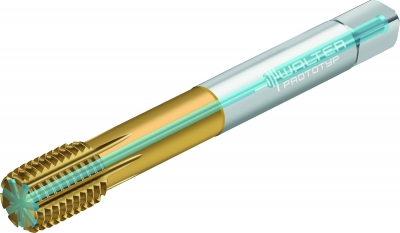
Walter has introduced the new TC420 Supreme thread for universal use. The HSS-E-PM thread former, with a high number of forming edges, produces high cutting speeds with up to 30% less torque, and good surface finish. The TC420 Supreme includes one configuration with chamfer form E, (M5–M16) for blind-hole threads up to 3.5 × DN, which uses an innovative combination of chamfer form E with axial internal coolant and without lubrication grooves. This new combination also improves the lubrication and, at the same time, reduces the torque by up to 30% – with a corresponding extension of tool life.
A new feature of the TC420 Supreme metric version, now up to M24 dimensions (metric fine M8x 1-M16 x 1.5), is radial internal coolant for blind-hole and through-hole threads, optimized for maximum performance in universal applications.
In addition to very high cutting data and long tool life, users of the TC420 Supreme benefit from good surfaces. These new thread formers also show higher break-out resistance under dynamic load compared with other threading techniques. Walter offers the new TC420 Supreme thread formers for medium to large batch sizes with and without lubrication grooves, as well as with axial or radial internal coolant, and without internal coolant. Tool coating options are either TiN coating (WW60AD grade) or TiCN (WW60BA). Typical areas of application include general metalworking as well as the automotive and energy industries, for ISO materials P, M, K, N and a secondary use in ISO S materials.
The Walter lineup of products consists of three categories to its tools. Supreme indicates the highest level of technology and performance available. Perform tools are products that provide an economical solution with focused importance on price and Advance which indicates product efficiently balanced between price and performance.
Related Glossary Terms
- blind-hole
blind-hole
Hole or cavity cut in a solid shape that does not connect with other holes or exit through the workpiece.
- coolant
coolant
Fluid that reduces temperature buildup at the tool/workpiece interface during machining. Normally takes the form of a liquid such as soluble or chemical mixtures (semisynthetic, synthetic) but can be pressurized air or other gas. Because of water’s ability to absorb great quantities of heat, it is widely used as a coolant and vehicle for various cutting compounds, with the water-to-compound ratio varying with the machining task. See cutting fluid; semisynthetic cutting fluid; soluble-oil cutting fluid; synthetic cutting fluid.
- metalworking
metalworking
Any manufacturing process in which metal is processed or machined such that the workpiece is given a new shape. Broadly defined, the term includes processes such as design and layout, heat-treating, material handling and inspection.
- threading
threading
Process of both external (e.g., thread milling) and internal (e.g., tapping, thread milling) cutting, turning and rolling of threads into particular material. Standardized specifications are available to determine the desired results of the threading process. Numerous thread-series designations are written for specific applications. Threading often is performed on a lathe. Specifications such as thread height are critical in determining the strength of the threads. The material used is taken into consideration in determining the expected results of any particular application for that threaded piece. In external threading, a calculated depth is required as well as a particular angle to the cut. To perform internal threading, the exact diameter to bore the hole is critical before threading. The threads are distinguished from one another by the amount of tolerance and/or allowance that is specified. See turning.
- through-hole
through-hole
Hole or cavity cut in a solid shape that connects with other holes or extends all the way through the workpiece.
- titanium carbonitride ( TiCN)
titanium carbonitride ( TiCN)
Often used as a tool coating. See coated tools.
- titanium nitride ( TiN)
titanium nitride ( TiN)
Added to titanium-carbide tooling to permit machining of hard metals at high speeds. Also used as a tool coating. See coated tools.


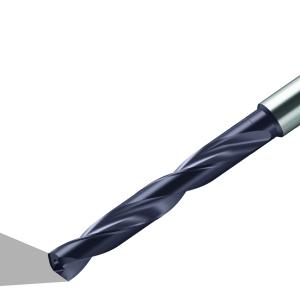
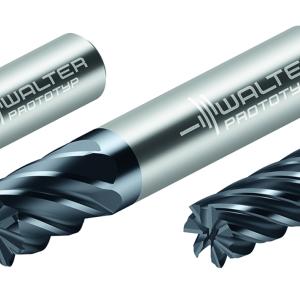
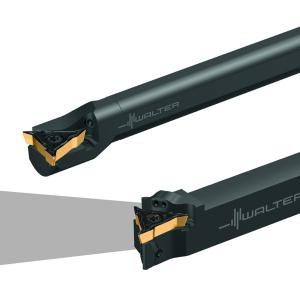


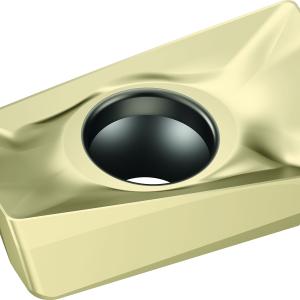
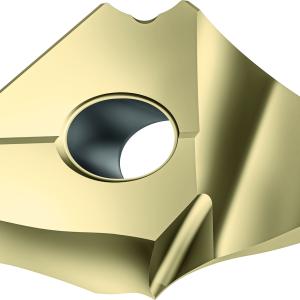
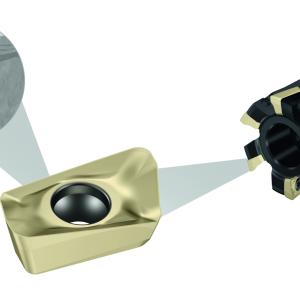

 PRODUCTS
PRODUCTS

